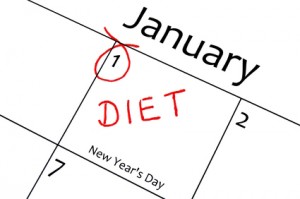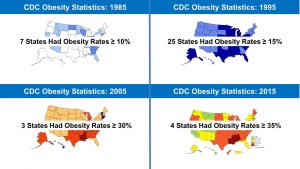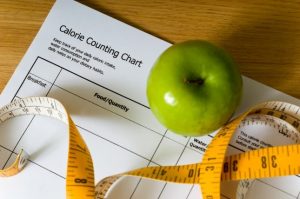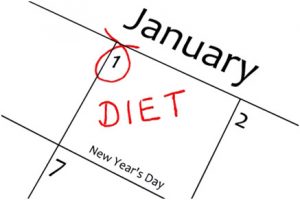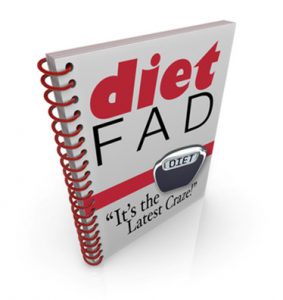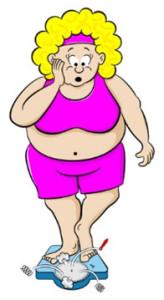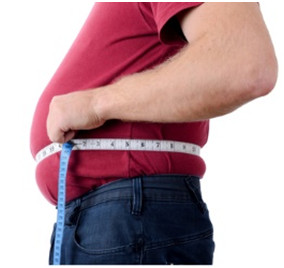Will Intermittent Fasting Help You Lose Weight?
Author: Dr. Stephen Chaney
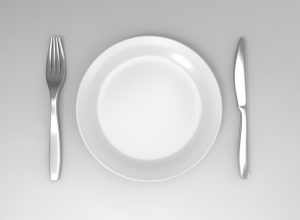 If you are like millions of Americans, one of your New Year’s resolutions is to lose weight. Now your dilemma is how to accomplish that. You have tried various diets before – Atkins, paleo, keto, Whole 30, etc. You lost some weight, but it came right back. You are looking for something new, something different from anything you have tried before.
If you are like millions of Americans, one of your New Year’s resolutions is to lose weight. Now your dilemma is how to accomplish that. You have tried various diets before – Atkins, paleo, keto, Whole 30, etc. You lost some weight, but it came right back. You are looking for something new, something different from anything you have tried before.
What about intermittent fasting? It’s hot right now. It’s probably different from what you have tried in the past. It doesn’t require radical changes to what you eat. Some of your friends are singing its praises. Could this be the one that solves your weight problem forever?
A Primer On Intermittent Fasting
 Let’s start by defining intermittent fasting and reviewing what we already know about it. There are several variations of what the mass media refers to as intermittent fasting, but the two most popular versions are:
Let’s start by defining intermittent fasting and reviewing what we already know about it. There are several variations of what the mass media refers to as intermittent fasting, but the two most popular versions are:
- Time-restricted fasting which limits daily intake of food to a 4 to 12-hour period. The most popular version of this restricts food intake to 8 hours followed by 16 hours of fasting.
- Intermittent fasting in which there is a day or more of fasting or decreased food intake between periods of unrestricted eating. The most popular version of this allows 5 days of unrestricted eating followed by 2 days of fasting.
A major review (Di Francesco et al, Science, 362: 770-775, 2018) of time-restricted and intermittent fasting was published a little over a year ago. At the time that review was published, there were lots of studies comparing time-restricted fasting with continuous caloric restriction. I summarized those findings in a previous issue of “Health Tips From the Professor” last January.
Here is a brief summary of the key findings from that review:
- If you read the blogs about time-restricted fasting, you will come across all sorts of metabolic mumbo-jumbo about ketone bodies, adiponectin, leptin, IGF-1, and blood glucose levels. It sounds so convincing. Don’t get sucked in by these pseudo-scientific explanations. At this point they are mostly speculation.
- Although there is no conscious effort to control calories, time-restricted fasting result in an inadvertent reduction in food intake by restricting the time allowed for eating and by eliminating late night snacking. This reduction in caloric intake is likely responsible for most of the weight loss associated with intermittent fasting. When you control for calories, there is no difference in weight loss between time-restricted fasting and continuous caloric restriction (your typical reduced calorie diet).
However, at the time the review was published, far less was known about the relative benefits of intermittent fasting and simple caloric restriction. Since that time, two studies have rigorously compared the effectiveness of intermittent fasting and continuous caloric restriction on weight loss. I review those studies below
Will Intermittent Fasting Help You Lose Weight?
 The first study (YM Roman et al, International Journal of Obesity, 43: 2017-2027, 2019) was a systematic review and meta-analysis of 9 clinical studies comparing intermittent fasting with continuous caloric restriction. Total caloric reduction was controlled and was the same for both intermittent fasting and continuous caloric reduction.
The first study (YM Roman et al, International Journal of Obesity, 43: 2017-2027, 2019) was a systematic review and meta-analysis of 9 clinical studies comparing intermittent fasting with continuous caloric restriction. Total caloric reduction was controlled and was the same for both intermittent fasting and continuous caloric reduction.
The studies ranged from 12 weeks to 52 weeks with most of them in the 20 to 30-week range. This meta-analysis found:
· There was no difference between intermittent fasting and continuous caloric restriction in terms of weight loss, waist circumference, or body fat loss.
· Loss of lean body mass, on the other hand, was greater for intermittent fasting than for continuous caloric restriction.
The authors concluded: “Since it is ultimately fat mass loss that improves health indices, and not the loss of muscle, the significantly greater loss of lean mass in the intermittent dieting group versus the continuous dieting group is concerning and needs to be further assessed.”
I would add, it is also concerning because lean mass muscle burns calories faster than fat mass. Loss of lean muscle mass could lead to a lower metabolic rate. That would make maintenance of the weight loss more difficult.
The second study (ML Headland et al, International Journal of Obesity, 43: 2028-2036) compared intermittent fasting versus continuous calorie restriction for 12 months in a group of 332 healthy overweight or obese adults. Again, total caloric reduction was the same for the two groups. In this study:
· There was no significant difference between intermittent fasting and continuous caloric restriction for weight loss, body fat loss, and lean body mass loss. [Note: The retention of lean body mass in this study differs from the loss of lean body mass reported in the previous study. Additional studies will be required before we become overly concerned about potential loss of lean body mass with intermittent fasting.]
· There were also no significant differences between the groups for blood levels of glucose, total cholesterol, triglycerides, HDL, and LDL.
Does Intermittent Fasting Work?
 These studies make it clear there is no “magic” associated with either time-restricted or intermittent fasting.
These studies make it clear there is no “magic” associated with either time-restricted or intermittent fasting.
· If either time-restricted or intermittent fasting allows you to reduce your daily caloric intake by restricting the time that you are eating, you will lose weight and keep it off. However, if you compensate for the fasting periods by consuming additional calories when you are eating, all bets are off.
· In clinical studies that restrict calories to the same extent in the various diets, neither time-restricted nor intermittent fasting results in greater weight loss than continuous caloric restriction (your typical reduced calorie diet).
o In addition, neither time-restricted nor intermittent fasting results in better improvement in blood parameters (glucose, total cholesterol, triglycerides, HDL, and LDL) than continuous caloric restriction.
· Intermittent fasting may result in greater loss of lean muscle mass than continuous caloric reduction. If confirmed by subsequent studies, this would be concerning.
This also means:
· If you happen to read the blogs about time-restricted or intermittent fasting, you can forget all the metabolic mumbo-jumbo about ketone bodies, adiponectin, leptin, IGF-1, and blood glucose levels.
o At this point this metabolic information comes mostly from animal studies. Its application to humans is purely speculation.
o Since time-restricted and intermittent fasting offer no advantage over continuous caloric restriction, there is no evidence that changes in any of those metabolic markers has any effect on weight loss in humans.
Finally, you need to ask whether time-restricted and intermittent fasting are something you can maintain in the real world.
· Your friends are unlikely to be on the same schedule. It won’t be easy to fit your diet around socializing, travel, and holidays.
The Bottom Line
There are several variations of what the mass media refers to as intermittent fasting, but the two most popular versions are:
- Time-restricted fasting which limits daily intake of food to a 4 to 12-hour period. The most popular version of this restricts food intake to 8 hours followed by 16 hours of fasting.
- Intermittent fasting in which there is a day or more of fasting or decreased food intake between periods of unrestricted eating. The most popular version of this allows 5 days of unrestricted eating followed by 2 days of fasting.
The latest studies make it clear there is no “magic” associated with either time-restricted or intermittent fasting.
· If either time-restricted or intermittent fasting allows you to reduce your daily caloric intake by restricting the time that you are eating, you will lose weight and keep it off. However, if you compensate for the fasting periods by consuming additional calories when you are eating, all bets are off.
· In clinical studies that restrict calories to the same extent in the various diets, neither time-restricted nor intermittent fasting results in greater weight loss than continuous caloric restriction (your typical reduced calorie diet).
o In addition, neither time-restricted nor intermittent fasting results in better improvement in blood parameters (glucose, total cholesterol, triglycerides, HDL, and LDL) than continuous caloric restriction.
· Intermittent fasting may result in greater loss of lean muscle mass than continuous caloric reduction. If confirmed by subsequent studies, this would be concerning.
Finally, you need to ask whether time-restricted and intermittent fasting are something you can maintain in the real world.
· Your friends are unlikely to be on the same schedule. It won’t easy to fit your diet around socializing, travel, and holidays.
For more details, read the article above.
These statements have not been evaluated by the Food and Drug Administration. This information is not intended to diagnose, treat, cure or prevent any disease.

